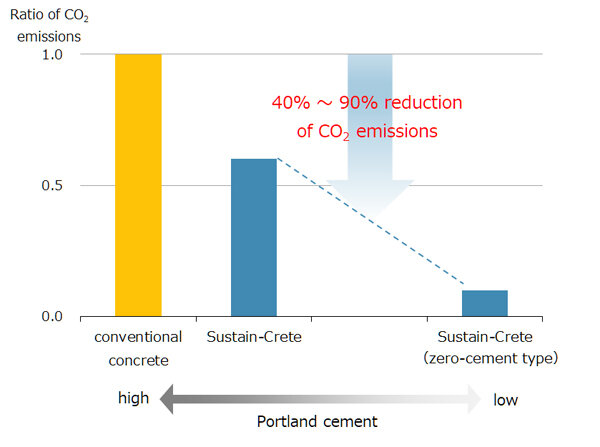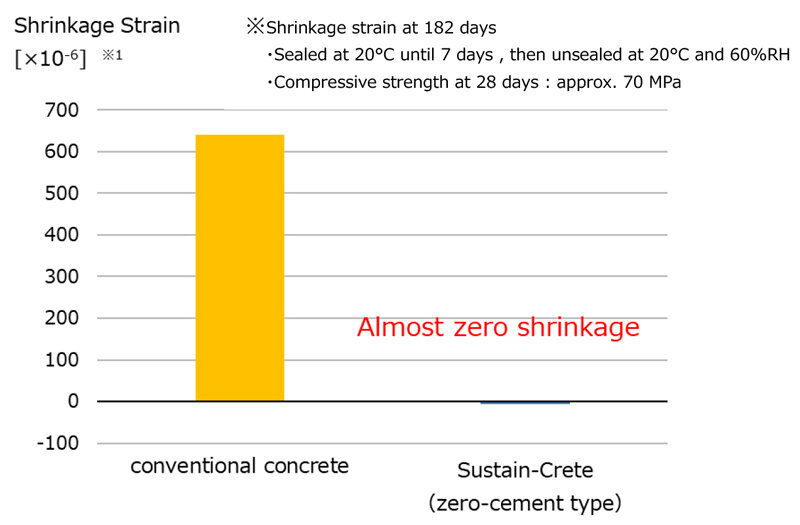Sustain-Crete
Sustain-Crete is a low carbon concrete that can reduce CO2 emissions from materials by 40% to a maximum of 90%. By optimizing the mix proportion of industrial by-products such as ground granulated blast furnace slag, fly ash and silica fume, Sustain-Crete enables reduction of using Portland cement, which has high CO2 emissions, and secures the required performance of various structures.
Characteristics
(1) Significant reduction of CO2 emissions
Sustain-Crete can reduce CO2 by more than 40% by using less Portland cement than conventional concrete. Under conditions without Portland cement (zero-cement type), CO2 emissions can be reduced by up to 90%.

CO2 Emissions of Sustain-Crete
(2) Suitable for normal strength to ultra-high strength (design strength: 220 MPa) applications
Sustain-Crete has a wider strength range than other low carbon concrete. Usually, ultra-high strength concrete uses more Portland cement than normal strength concrete, however, Sustain-Crete can reduce the amount of Portland cement even for ultra-high strength members, thereby reducing CO2 emissions.

Strength range of Sustain-Crete
(3) Special mix proportion for achieving ultra-low shrinkage performance
Sustain-Crete can achieve ultra-low shrinkage performance, by utilizing a special fine aggregate (ferro-nickel slag sand), which is an industrial by-product. This significantly reduces the risk of shrinkage cracking and improves the durability of the concrete structure.
This special mix can be applied to structural members where shrinkage cracking is undesirable, as well as to members with complex shapes that are difficult to form using conventional concrete due to shrinkage cracking.

Shrinkage characteristics of Sustain-Crete with ultra-low shrinkage performance
